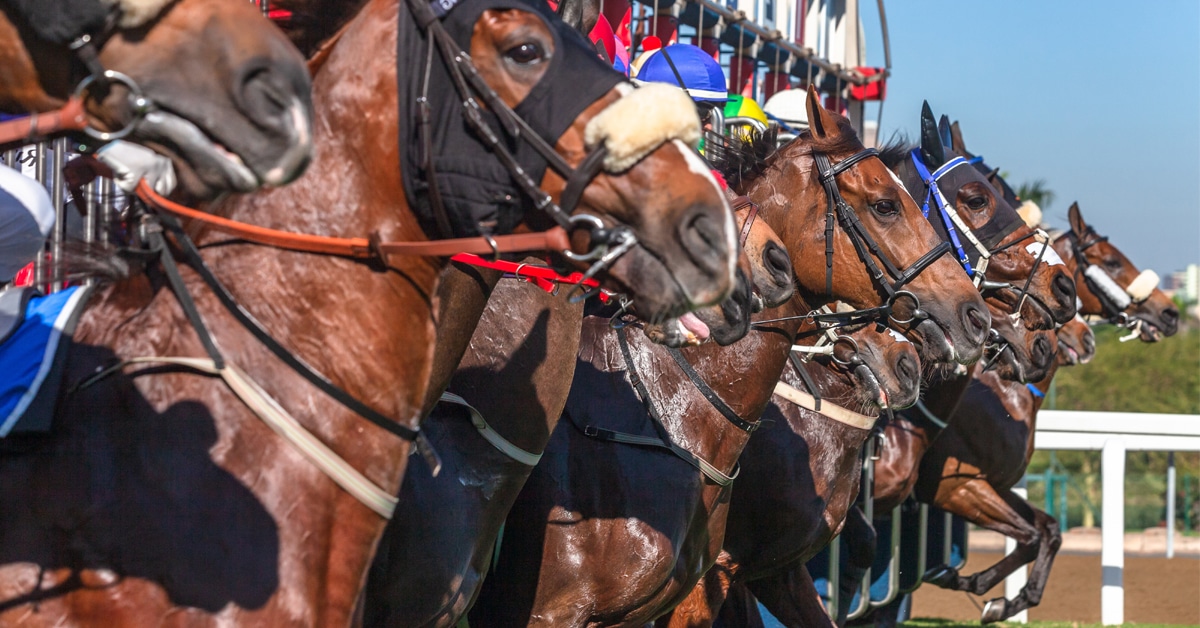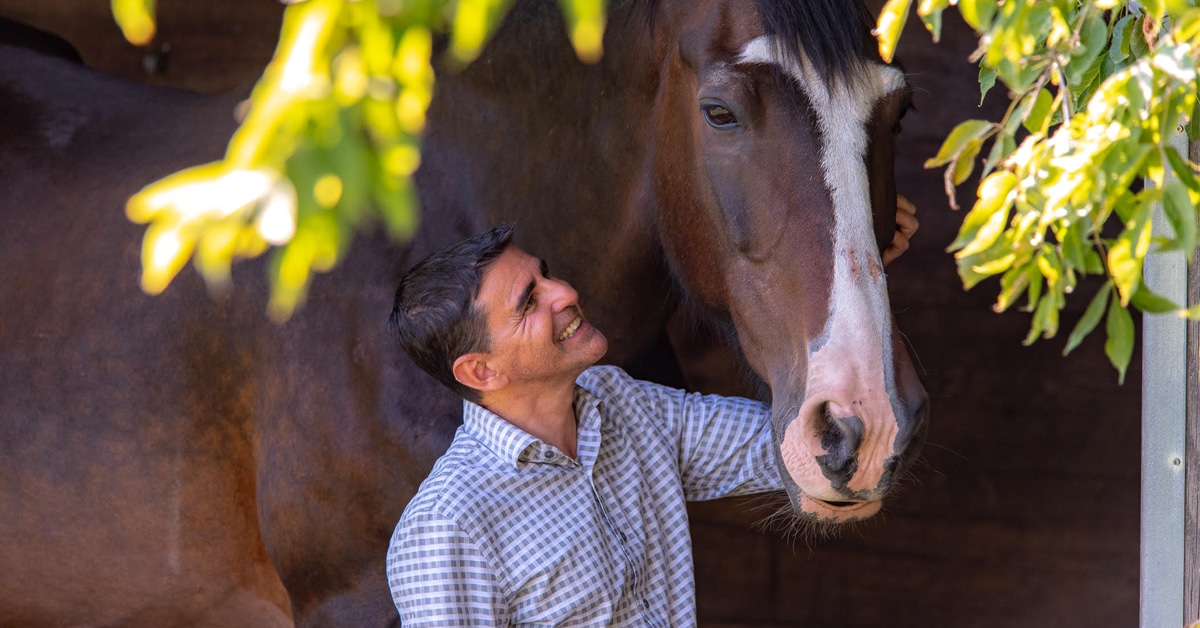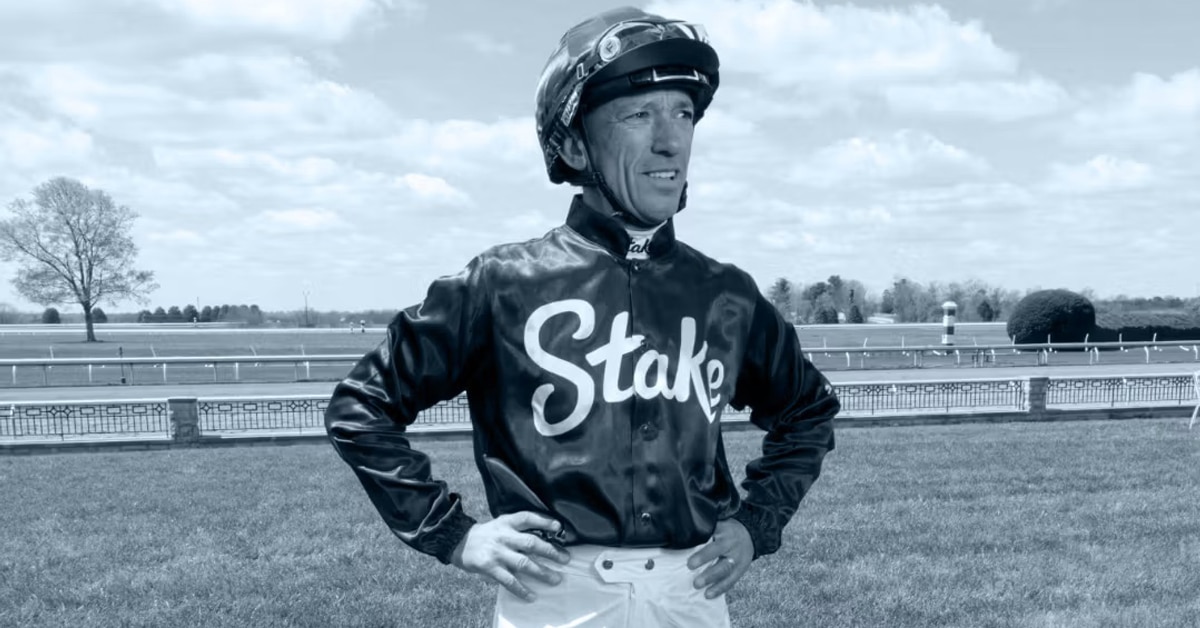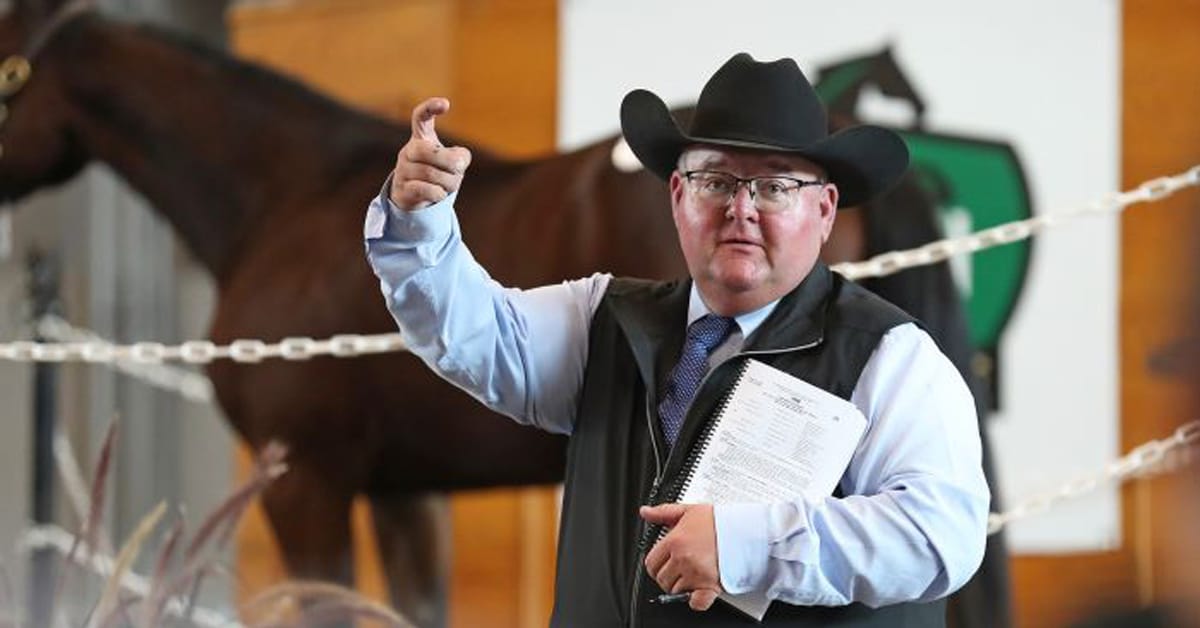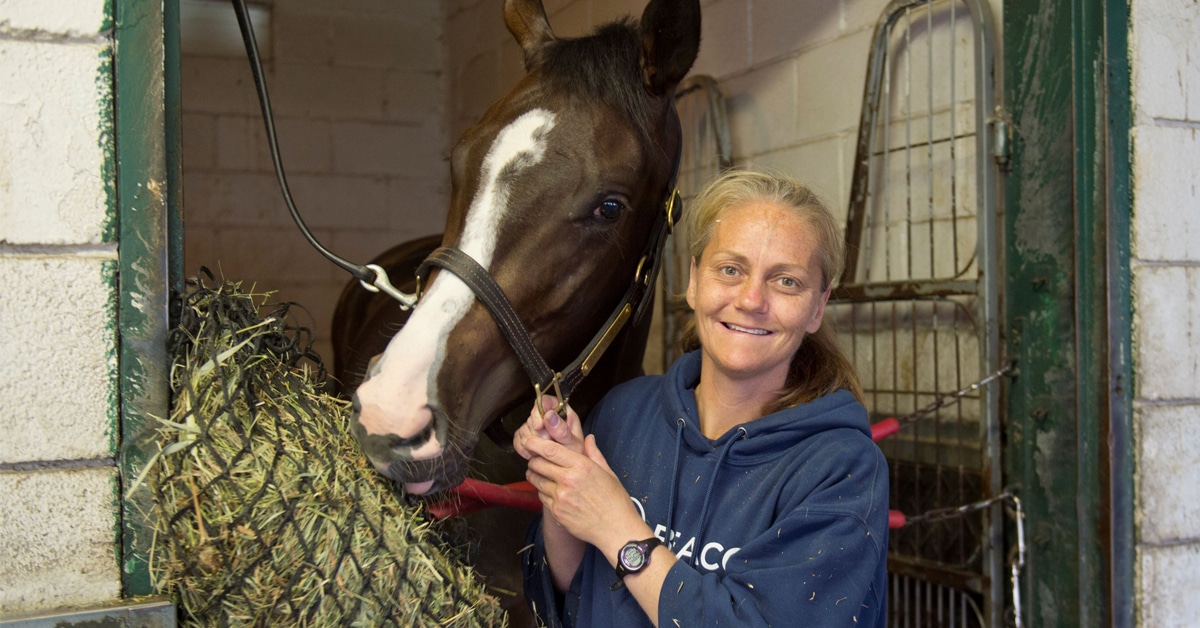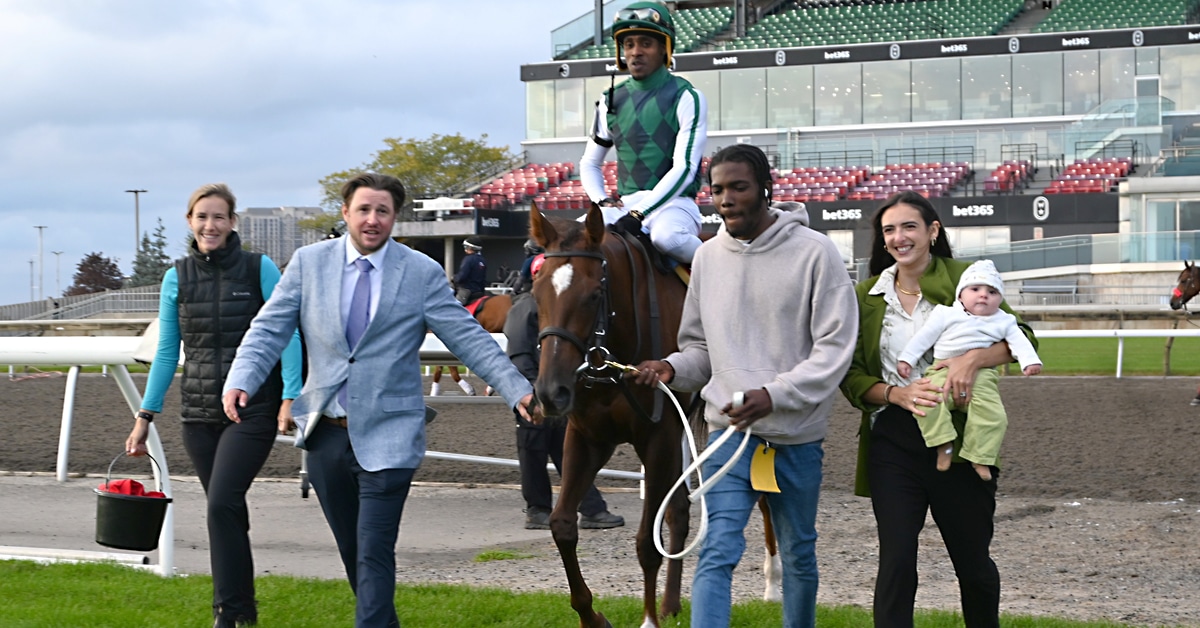There is one thing that Josie Carroll has managed to do extremely well throughout her Hall of Fame training career: win.
Consistency has long been a hallmark of Carroll’s impressive life in horse racing.
The Ontario native made the thoroughbred world take notice of her talents in 1995, her sophomore campaign as a conditioner. Tethra, owned by the Eaton family, won three stakes races that year, and helped put Carroll on the path to success.
Closing in on 850 career wins, Carroll holds rank as one of North America’s most prominent trainers.
Her list of stakes winners is long and impressive. Edenwold, Inglorious, Careless Jewel, Ami’s Gizmo, Gamble’s Ghost, Ami’s Flatter, Ami’s Holiday, Leigh Court, Mr. Sulu, Serenading and Smart Surprise are but a small sample of her superlative success stories.
Highlights – far too many to mention – include two Queen’s Plate triumphs, the first coming in 2006 with Edenwold (Carroll became the first female trainer to win the “Gallop For the Guineas”) and another in 2011, this time with Inglorious.
Another major triumph came when Donver Stable’s Careless Jewel delivered her a Grade 1 crown in taking the 2009 Alabama.
In 2019, Carroll took her rightful spot in the Canadian Horse Racing Hall of Fame, and in doing so, became the first female conditioner to be inducted.
With 139 lifetime stakes triumphs, including 26 over the past three seasons, Carroll trainees continue to come up big in big races.
Off the track, she provides a strong voice for thoroughbred racing, including her role on the board of directors for the HBPA.
What are the most critical challenges facing the industry in Canada today?
“I think keeping a place in a very competitive market for the wagering and entertainment dollar is a big challenge. We have huge image problems as an industry and this all trickles down – it affects interest in horse ownership, and without owners it hurts our breeding industry. As a sport, we need to be more attractive to the gamblers. With sports betting opening up, we have to have a product they want to wager on or we will become irrelevant.”
What needs to change about the industry in the next 5-10 years?
“Every effort has to be made to ensure the safety of our equine athletes. We are in an atmosphere where people want to know that horses are safe, that they are doing what they enjoy doing, and the sport is clean. That’s pre-eminent. If we can attain that perception, perhaps people will be more interested in owning horse again.
“In Canada, we are at huge disadvantage compared to the United States with the tax laws. The U.S. gets huge tax breaks to support its industry and our owners get virtually nothing. I know a lot of people are working on this right now and all of us have to get behind that. When we’re asked to write letters or show up at something, we need to do it. We need to give our owners all the support we can.
“The other thing is what we are going to do with our wagering. I think we better start being innovative. I think we need to look at alternatives to the standard win, place and show wagering. We have to think whether fixed odds have a place in our industry. I think young people – when they are placing a wager – want to know what kind of return they are getting. They don’t want things to fluctuate the way they do. These things need to be looked at and studied if we are going to compete in the gaming industry field.”
How can you help affect that change?
“As trainers, we have to hold ourselves to the highest standards of integrity in our sport. I think we need to encourage participation from our owners, and I think we need to share more information and be very open about everything. Personally, being involved with the HBPA, hopefully, that gives me an opportunity to have a voice for the horsepeople.”
Where do you see the thoroughbred industry in Canada in 10 years?
“That’s really up to us. I’m an optimist. I think this sport… it’s stood the test of time. There is nothing as unique as the partnership between man and horse. If we can showcase our equine athletes, we can draw people back to our sport. I think Woodbine is on the right track with building multiple venues to attract people, but once we get people, we need to put them close to the horses. Horses are the biggest sell for this industry. They fire up power and imagination in people in a way that other sports can’t compare. If we can grow our sport in that way, bringing people out, we can flourish.”
The Latest

